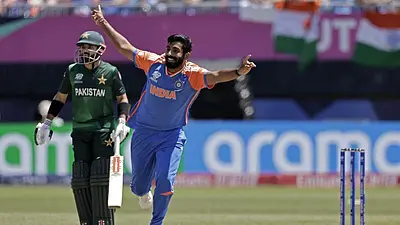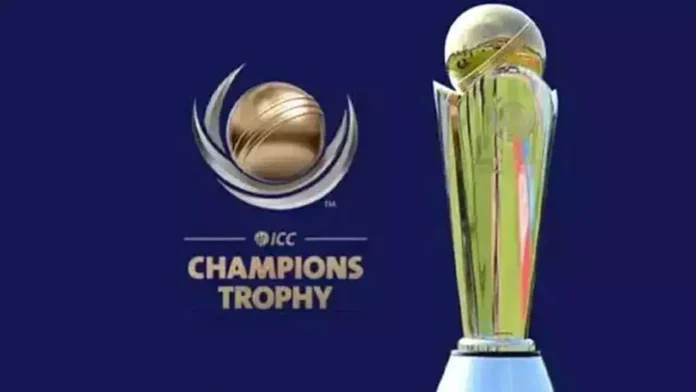Pakistan Denies Back-Channel Talks With India Over Champions Trophy Participation
In a recent statement, Pakistan has confirmed that there are no back-channel diplomatic talks with India regarding the upcoming Champions Trophy, set to be held in February-March 2025. The Pakistan Cricket Board (PCB) clarified that despite reports suggesting possible behind-the-scenes negotiations, there have been no diplomatic efforts to persuade India to participate in the tournament on Pakistani soil. The confirmation comes after India’s refusal to send its cricket team to Pakistan for the ICC event, citing security and political concerns.
The ICC, in light of India’s decision, has sought a response from the PCB on the possibility of hosting the tournament through a hybrid model, allowing matches to be held in neutral venues as well as in Pakistan. This proposal aims to ensure India’s participation without compromising its stance on traveling to Pakistan. However, the PCB’s stance on this model remains uncertain as discussions with the ICC continue.

Background Of The India-Pakistan Cricket Standoff
The political tension between India and Pakistan has long affected their cricketing relations, resulting in both countries rarely facing each other outside of ICC events or multi-nation tournaments. The reluctance of India to travel to Pakistan for the Champions Trophy aligns with its long-standing policy of not engaging in bilateral series or matches on Pakistani soil. This stance, rooted in security concerns and political issues, has led to a strained cricketing relationship between the two nations.
The 2025 Champions Trophy has thus become a focal point of this tension, as the ICC seeks to balance the interests of both countries while preserving the integrity of the tournament. India’s refusal to travel to Pakistan could potentially affect the tournament’s scheduling and venue planning, prompting the ICC to explore alternative solutions like the hybrid model.
ICC’s Hybrid Model Proposal: An Attempt To Ensure India’s Participation
In response to India’s decision, the ICC proposed a hybrid model for the Champions Trophy, allowing some matches to be held in a neutral country. This model would enable India to participate without traveling to Pakistan, thus addressing its security concerns. The hybrid model, which was previously used in the Asia Cup, could allow both countries to engage in the tournament under adjusted circumstances.
The ICC’s approach reflects its commitment to maintaining the global appeal of the Champions Trophy, as India’s participation is crucial for viewership and sponsorship. However, the PCB’s willingness to accept the hybrid model is uncertain, as hosting matches outside Pakistan might impact its home advantage and potentially its revenue from the event. The ICC is expected to continue discussions with the PCB to finalize the tournament format in a way that satisfies both parties.

PCB’s Position: Upholding Pakistan’s Right To Host The Champions Trophy
While the ICC has proposed a compromise, the PCB is reportedly keen on hosting the Champions Trophy entirely within Pakistan. For Pakistan, hosting a global cricketing event like the Champions Trophy is a significant achievement, symbolizing its capability to host international teams after years of isolation due to security concerns. The PCB has worked to restore international cricket in Pakistan, hosting various teams and establishing a secure environment for visiting players.
For the PCB, allowing matches to be held outside Pakistan could be seen as a setback to its efforts to reintegrate Pakistan into the global cricketing landscape. The board is expected to advocate for a full tournament on Pakistani soil, emphasizing its security arrangements and commitment to providing a safe environment for players. However, if India remains firm in its decision, the PCB may face a dilemma between hosting a modified tournament or risking India’s absence from the event.
India’s Stance On Traveling To Pakistan: A Security And Political Standpoint
India’s reluctance to travel to Pakistan for the Champions Trophy stems from longstanding security concerns and diplomatic considerations. The Indian government’s policy has limited cricketing engagement with Pakistan to neutral venues or ICC events outside Pakistan. Given the political tensions and past incidents, India maintains a cautious approach, emphasizing player safety as a primary concern.
This stance has significant implications for international cricket, as India is a major cricketing nation with a massive fan base. The absence of India in an ICC event hosted in Pakistan could impact viewership, sponsorship, and the tournament’s overall appeal. India’s firm stance presents a challenge for the ICC, as accommodating both countries’ positions is crucial for a successful Champions Trophy.

Fan Reactions: Mixed Sentiments Amid Uncertain Participation
The uncertainty surrounding India’s participation has sparked varied reactions among cricket fans. While Pakistani fans are eager to see their country host a prestigious ICC event, Indian fans have expressed disappointment over the potential withdrawal from the tournament. Social media platforms have been flooded with opinions, with many fans calling for a diplomatic resolution that allows both teams to participate without compromising on security concerns.
For cricket enthusiasts, an India-Pakistan match is one of the most anticipated events in the sport, drawing millions of viewers worldwide. The Champions Trophy offers a rare opportunity for fans to witness this high-stakes rivalry, and the current standoff has raised doubts about whether such a contest will take place. The situation reflects the complex intersection of sports, politics, and diplomacy, as fans hope for a solution that prioritizes the game.
Potential Impact On The Champions Trophy: A Test For ICC’s Diplomacy
The Champions Trophy, scheduled for early 2025, presents a significant test for the ICC’s diplomatic and organizational capabilities. Ensuring India’s participation while respecting Pakistan’s hosting rights requires a delicate balance. The ICC’s decision will not only impact the tournament’s structure but also set a precedent for future events involving countries with political conflicts.
The ICC’s hybrid model proposal indicates a willingness to adapt to geopolitical realities, allowing major tournaments to proceed without political barriers. However, implementing this model may face logistical challenges and require extensive cooperation from both boards. The outcome of this situation will be closely watched by cricket boards globally, as it could shape the approach to organizing international tournaments in politically sensitive regions.
Looking Ahead: Will There Be A Diplomatic Solution?
As the ICC continues discussions with both the PCB and the BCCI, the cricketing community remains hopeful for a diplomatic resolution that allows the Champions Trophy to proceed with both India and Pakistan’s participation. The outcome will reflect the ICC’s ability to navigate complex political landscapes while prioritizing the sport’s interests. Fans, players, and stakeholders await a decision that balances security, diplomatic considerations, and the spirit of cricket.

